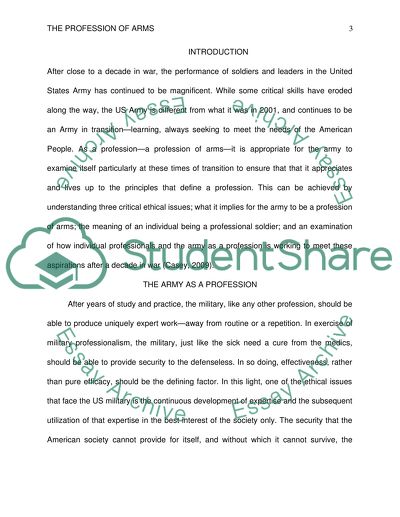Cite this document
(“The Profession of Arms Research Paper Example | Topics and Well Written Essays - 1250 words”, n.d.)
Retrieved from https://studentshare.org/military/1438311-the-profession-of-arms
Retrieved from https://studentshare.org/military/1438311-the-profession-of-arms
(The Profession of Arms Research Paper Example | Topics and Well Written Essays - 1250 Words)
https://studentshare.org/military/1438311-the-profession-of-arms.
https://studentshare.org/military/1438311-the-profession-of-arms.
“The Profession of Arms Research Paper Example | Topics and Well Written Essays - 1250 Words”, n.d. https://studentshare.org/military/1438311-the-profession-of-arms.


